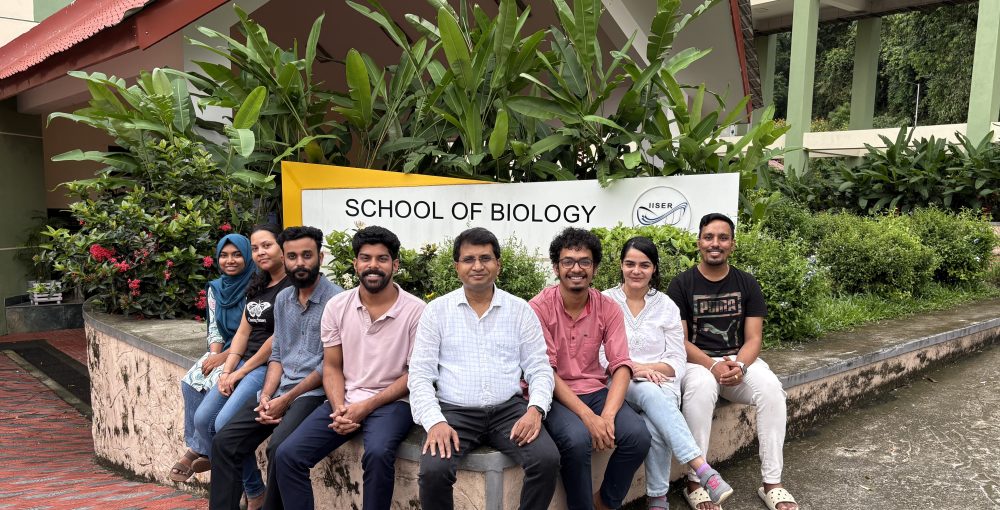We work on two major areas:
1. Regulation of mitotic spindles and mitotic chromosome segregation
Survival and generation of organisms rely on faithful and equal segregation of their cell’s duplicated chromosomes into the progeny. In eukaryotes, this process requires appropriate interaction of each chromosome with the spindle microtubules during mitosis. Microtubule-chromosome interaction is crucial for bi-orientation of chromosomes on the metaphase plate and thereafter segregation of sister chromatids at the anaphase. An important determinant of these processes is the precise coupling of chromosome movement to the highly dynamic microtubules. The coupling is mediated by kinetochore, a highly complex multi-proteineous structure assembled on the centromere region of the chromosome. Kinetochore assembly is a dynamic yet a highly conserved process and it occurs periodically following the entry and exit of mitosis. How kinetochore couples chromsome movement to the dynamic microtubules and how its assembly is regulated are poorly understood. Our current research is aimed to identify and characterize novel components that regulate kinetochore-microtubule interaction, kinetochore assembly, chromosome segregation and mitotic checkpoint activation. Results of these studies are expected to identify potential drug targets against cancer and various chromosome-linked disorders.
2. Regulation of centrosome and its associated signaling pathways
Centrosomes are key organelles that nucleate and organize microtubules in most animal cells and are essential for cell division/mitosis, cell polarization, biogenesis of cilia etc. During mitosis, centrosomes form the spindle poles that organize mitotic spindles to orchestrate chromosome segregation. Each centrosome is composed of two orthogonally arranged microtubule-based structures, called centrioles. During G1 to S phase transition, each centriole of centrosome gives birth of a new daughter centriole from their proximal ends giving rise to two centrosomes (mother and daughter), which are then pulled apart by the microtubules and are properly positioned to act as the spindle-poles during mitosis. Deregulation of centrosome/centriole duplication results in cell division- and cell polarity-defects and is linked to cancer and various developmental disorders such as microcephaly, ciliopathey etc. Our goals are to understand the molecular and structural basis of centrosome/centriole biogenesis/duplication, regulation of centrosome-mediated processes such as spindle organization, cortical polarity, and ciliogenesis. Understanding these is expected to facilitate in identifying new therapeutic targets against diseases such as cancer and various developmental disorders.
We employ biochemical, cell biological, biophysical and imaging techniques both in vitro and in human cells for our research.
Extramural Funding: DST, CSIR, DAE, DBT
